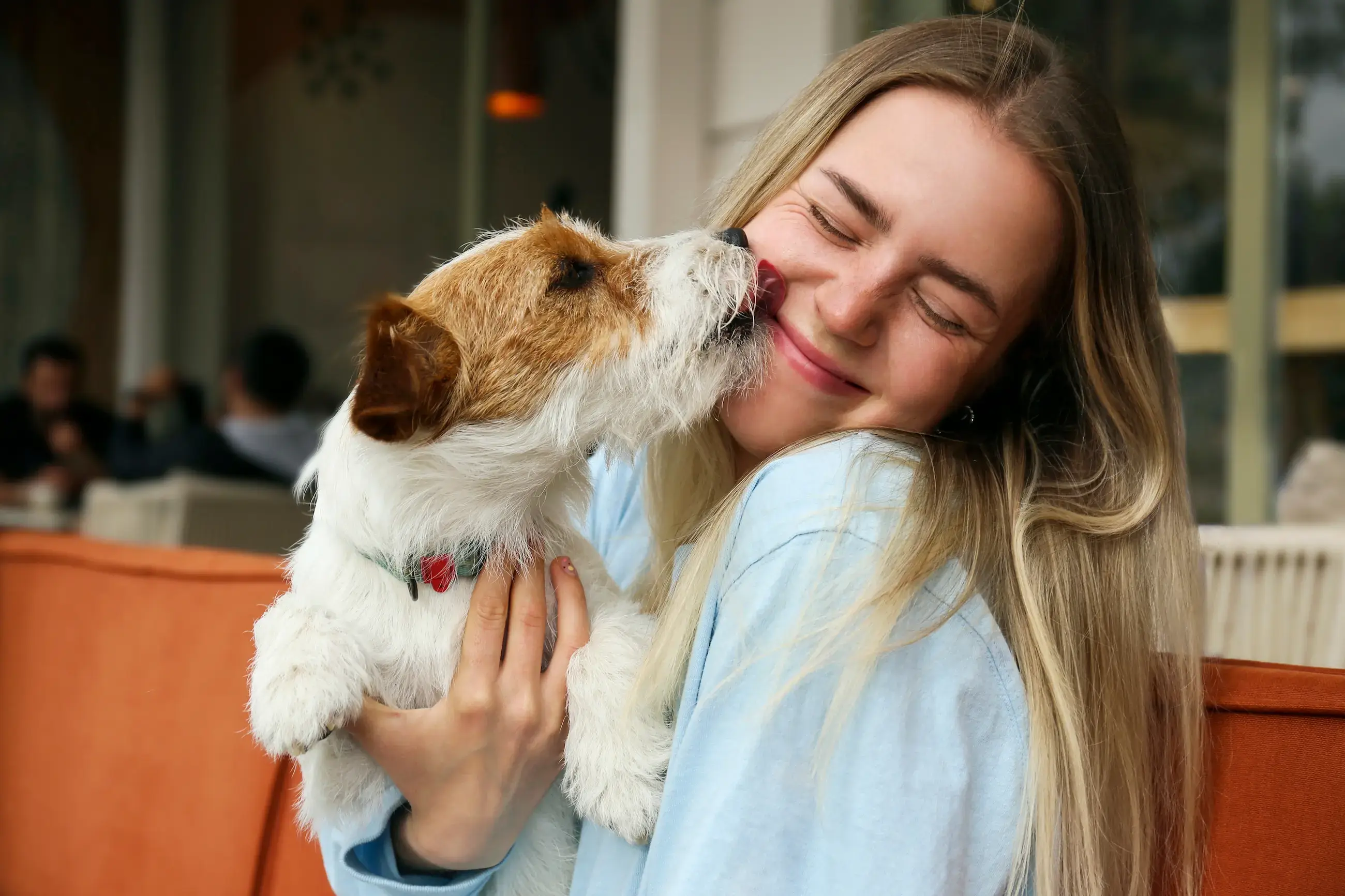How to Keep Your Pets Happy and Healthy Over the Holidays
December 08, 2021

Written By: VetriScience
By Heather Viera
Treats, lights, parties—the holidays bring fun and family together. However, they can also come with some serious health hazards for animals. As you fill your home with different foods, people, and decorations, take a minute to think about how they could affect your pet. We’ve put together a list to help you identify a few potential problem areas.
1. Give Your Pet Space
Your pet’s emotional health is just as important as their physical health. Holidays come with new people, loud noises, and unfamiliar smells. Pets respond to stress in many of the same ways as humans. They may get irritable or aggressive.
Give your pet a place to hide from the crowds. It could be a bedroom or a crate in a quiet space. Keep an eye on young children who are less likely to understand and respect a pet’s boundaries.
2. Watch the Goodies
Almost everyone knows that dogs shouldn’t eat chocolate. But it’s not the only thing that’s toxic to pets. Xylitol, an artificial sweetener is another ingredient that can wreak havoc on your pet’s digestive system. People food, in general, isn’t a good idea for dogs, cats, or any other animals. Some may have hidden ingredients that are toxic for pets while others will just give them an upset stomach.

3. Keep Decorations Out of Reach
Christmas trees and ornaments can be a health hazard for pets. Cats who climb or dogs who try to drink the tree water could knock it down, hurting themselves and you. Secure that tree with extra wires or put it in a room where your pet isn’t
allowed. Keep ornaments out of your pet’s reach.
Cats love tinsel. All that glittery flowy goodness is hard to resist. However, it’s incredibly dangerous for your cat. If your cat ingests tinsel or New Year’s confetti, it can get wrapped around the base of their tongue or somewhere in the digestive tract. Once that happens, it can form an obstruction. Vomiting, diarrhea, poor appetite, and lethargy may follow.
You may want to skip tinsel and ribbon altogether. If someone brings it into your home, nab your pet vacuum and suck it up before your favorite feline even sees it.
4. Watch Your Holiday Plants
Many pet owners forget that people food isn’t the only thing pets might eat or chew. Common holiday plants like holly and mistletoe are a big no-no for pets.
All parts of holly, from the bark to the berries, can be dangerous if ingested. Keep it high or even better, leave it outside the home. Like holly, all parts of mistletoe are poisonous, too. Each species of mistletoe contains slightly different toxins, but they’re all dangerous. As much as we love live plants, fake ones are safer for pets.
5. Try Calming Supplements
The holidays are not only stressful for us, but our pets, too! Whether it’s house guests, parties or travel days, the holiday season causes disruption to your furry friend’s daily routine. Not to worry, calming supplements like Composure™ can help your pet relax no matter what’s on tap.
You can count on fast-acting Composure to work during stressful holiday parties, car rides, and everything in-between. Composure is clinically shown in dogs to work within 30 minutes and last up to 4 hours.* You can even double or triple the recommended dose during times of heightened stress.
The holidays can be a fun time for your entire family, including the furriest members. As you plan your holiday with extra care, remember pet safety. You’ll get some much-needed peace of mind and can spend your time creating holiday memories.
Keep Composure handy this holiday season for happier, calmer, more relaxed pets!
Heather Viera is a lifestyle expert and researcher for Family Living Today. She is dedicated to achieving a balanced lifestyle, even with two small children and a full-time career. In her free time, she enjoys hiking with her partner and taking her dog to the beach.
*Some of the products here may have been rebranded in 2024. See here for a full list of previous & new product names.
Topics: Supplements, holidays, composure, General Animal Health



%20(1)-1.webp)
